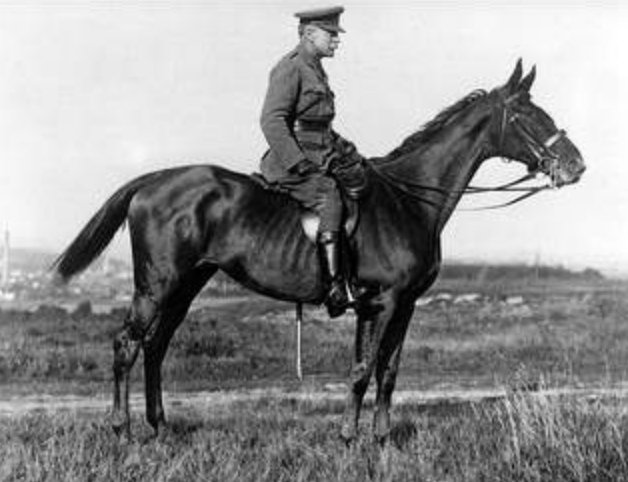"There are probably three main reasons. First, he remains one of the most controversial figures in British history, both the victor of Britain's Great War as Commander-in-Chief of the largest number of British forces in the field before or since and the authority who presided over Britain's greatest loss of life in war. Second, he continues to fascinate those interested in the First World War whether for or against in the ‘Haig debate, and he can be guaranteed to fill halls and sell books for many years to come. Third, and more importantly, to cite the words of General John M. Schofield: ‘[It] is the legitimate aim of just military criticism, not to build up or pull down the reputations of military commanders, but to assist military students to perfect themselves in the art and science of war'.
General John Schofield knew what he was writing about, having served through the US Civil War finishing in Command of the Army of the Ohio under General William Tecumseh Sherman. He was the victor of the Battle of Franklin on 30 November 1864 and, later, Secretary of War. His memoir, Forty-Six Years in the Army is a reliable account of the military events in which he played a considerable part and of those with whom he served. Sherman thought him ‘possessed of qualities of mind and character [which] fitted [him] in the highest degree for the work then in contemplation.' (1)
Reputations were made and broken during the American Civil War by those who commanded the Armies of the Union and the Confederacy, and were remade and re-broken in the published memoirs and accounts that followed. It is, perhaps, for this reason that the Official Records: The War of the Rebellion remains, throughout its 150 massive volumes, a collection of official reports, orders and messages with the minimum of analysis, commentary or criticism. It is, perhaps, for a similar reason that the historian turns in vain to the volumes of Official History, published after the First World War, to find a definitive assessment of Haig's generalship. The volumes, despite being packed and detailed, refrain from any comment on the relative merits or demerits of British commanders. Indeed, their very blandness in this respect, left the British public unable to form a balanced judgement of the good, the bad and the indifferent, leaving it to the Press and sensationalist publishers to kindle and rekindle the controversy. In no small measure, this state of affairs simply reflects Brigadier-General Sir James Edmonds' reluctance to be drawn into the controversy as he consulted those who took part in the war and attempted to even out their views. Also, it partly reflects Edmonds' own sense of his position as a contemporary but lesser figure among the men about whom he was writing…"

Main page
link
Amicalement
Armand

